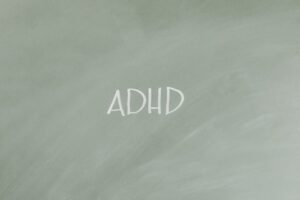Introduction
Addiction affects not just the individual who struggles with substance use but ripples across entire family systems. The interwoven nature of families means that when one member embarks on the journey of addiction recovery, it profoundly impacts the whole family. Recognizing and understanding the role a family can play in this process is essential, as their support can often be the cornerstone of a successful recovery.
The Importance of a Support System
When an individual endeavors on the path to recovery from addiction, having a steadfast support system proves invaluable. Family members can provide the emotional and psychological support necessary to navigate challenging times, mitigate feelings of isolation, and motivate them to stay committed to sobriety.
Understanding Codependency and Family Dynamics
In many cases, families dealing with addiction may experience unhealthy dynamics, often referred to as codependency. Codependency is characterized by a cycle in which family members enable and support addictive behaviors, sometimes unintentionally. Recognizing and addressing these patterns through family therapy and counseling is crucial, allowing a more balanced, healthy, and supportive network.
The Power of Family Therapy
Family therapy serves as a vital component in the addiction recovery process. This therapy provides a platform for open communication where family members can express their feelings, learn from each other, and develop communication skills necessary to foster healthier relationships. Therapists work with families to identify and break unhealthy patterns, understand the root of specific behaviors, and craft a robust plan tailored toward relationship rebuilding.
Essential Communication Skills
Effective communication is a pivotal element in rebuilding fractured relationships and ensuring a harmonious environment conducive to recovery. Families are advised to focus on active listening, expressing feelings without blame, patience, and empathy. Mastering these communication skills can significantly improve the dynamics within the family unit, contributing to a supportive environment for the recovering individual.
Setting Boundaries for a Healthier Dynamic
Boundary setting is a critical skill for families involved in the recovery journey. Establishing clear boundaries helps prevent enabling behaviors and promotes accountability. Families learn to differentiate between supporting recovery and potentially undermining it by setting reasonable expectations and understanding the consequences of breaking these boundaries.
Family Interventions: When and How
For families experiencing immense difficulty in addressing a loved one’s addiction, a family intervention may be required. Interventions involve a structured conversation guided by an intervention specialist, aiming to persuade the individual to seek treatment and conveying the collective love and concern of the family. These interventions require skillful planning but can be a turning point in the recovery journey.
The Role of Group Therapy
Group therapy provides an excellent setting for families to interact with others facing similar challenges. Sharing experiences, strategies, and coping mechanisms offers learning opportunities, mutual support, and the reassurance that they aren’t alone. Such shared healing experiences further solidify the family’s role in the recovery process.
Building Lasting, Supportive Bonds
As the journey progresses and family members continue to grow and learn together, the focus often shifts towards relationship rebuilding. Rebuilding relationships involves trust, forgiveness, and an understanding that healing is an ongoing journey. With commitment and perseverance, families can emerge stronger, their bonds fortified by shared experiences and mutual support.
Conclusion
Acknowledging and embracing the family’s role in the addiction recovery journey is crucial for achieving lasting recovery and building a healthier home environment. Family therapy, effective communication, boundary setting, and group therapy can foster healing dynamics and lessen the recurrence of enabling behaviors. Ultimately, the family acts as the bedrock of emotional support, empowering the recovering individual in their pursuit of a sober, healthier future.

